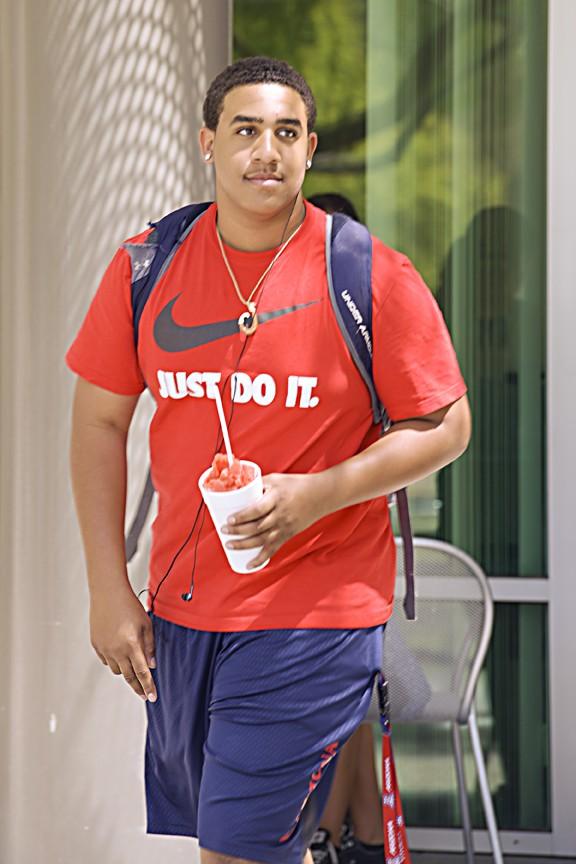As the Arizona sun continues to bring triple-digit temperatures, the intense heat can pose major health risks for those who are unprepared.
According to Dr. Brian Drummond, clinical assistant professor and medical director of the University of Arizona Medical Center — South Campus, UAMC typically sees one or two patients per shift, who are suffering from a heat-related ailments such as dehydration or heat exhaustion.
The chances of getting these increase anytime the temperature rises above 110 degrees, because of the lack of a cooling down period at night, Drummond said.
Most cases on campus are people visiting from other parts of the country who are not aware of how dangerous the heat in Southern Arizona, specifically Tucson, can be in the summer, said Lisette LeCorgne, a nurse practitioner for Campus Health Service.
For the campus community, including incoming freshman and their parents who may be new to Arizona, knowing the proper precautions to prevent dehydration and heat exhaustion can be crucial.
“If you’re not consuming enough water when the temperature is past ninety five degrees, your body can’t radiate heat and you won’t sweat,” Drummond said.
Those going out in the heat should only be outside in the mornings, he added, as the afternoon hours can be too hot.
For students walking across campus, Drummond suggests walking through air-conditioned buildings to stay cool, as well as avoiding any outside activities throughout the day, that are too strenuous.
Though Campus Health Service has not seen as many cases as UAMC, only three this summer LeCorgne said, she suggests students drink at least a liter of water so they know they are well hydrated.
“When exercising, particularly hiking when you’re in the heat, avoid being out during the hours between 10 [a.m.] and 2 [p.m.],” LeCorgne said. “If you have to be out in the sun, wear a hat and sometimes even long sleeves, to protect yourself from the sun.”
It is also important to balance caffeinated beverages and alcohol with non-caffeinated beverages, like water, she added.
“Drinking alcohol and caffeine are both diuretics and they can both contribute to dehydration,” LeCorgne said.
“…Vasoconstrictive drugs can also be dehydrating, but alcohol is a more dehydrating drug than most.”
Some signs of dehydration include vomiting, light headedness, dry mouth and tiredness, according to Drummond.
“The best treatment for dehydration is prevention,” Drummond said. “If you’re already dehydrated, you must find a cold space and sit down with a large amount of fluids.”
It is important to continue this process for the next 12 to 24 hours with a lot of relaxation, he added.
Stephanie Sipe, a communications senior, said she takes precautions to beat the heat.
“I always bring a water bottle with me to class and ride my bike so I don’t have to walk too far and get really hot,” Sipe said.
For those who are spending time on the UA campus this summer, taking the proper precautions to avoid heat-related sickness can be crucial.
“The best thing you can do,” Drummond said, “is to wake up and drink a couple glasses of water before you start your day…Try to avoid doing anything too strenuous throughout the day outside.”









